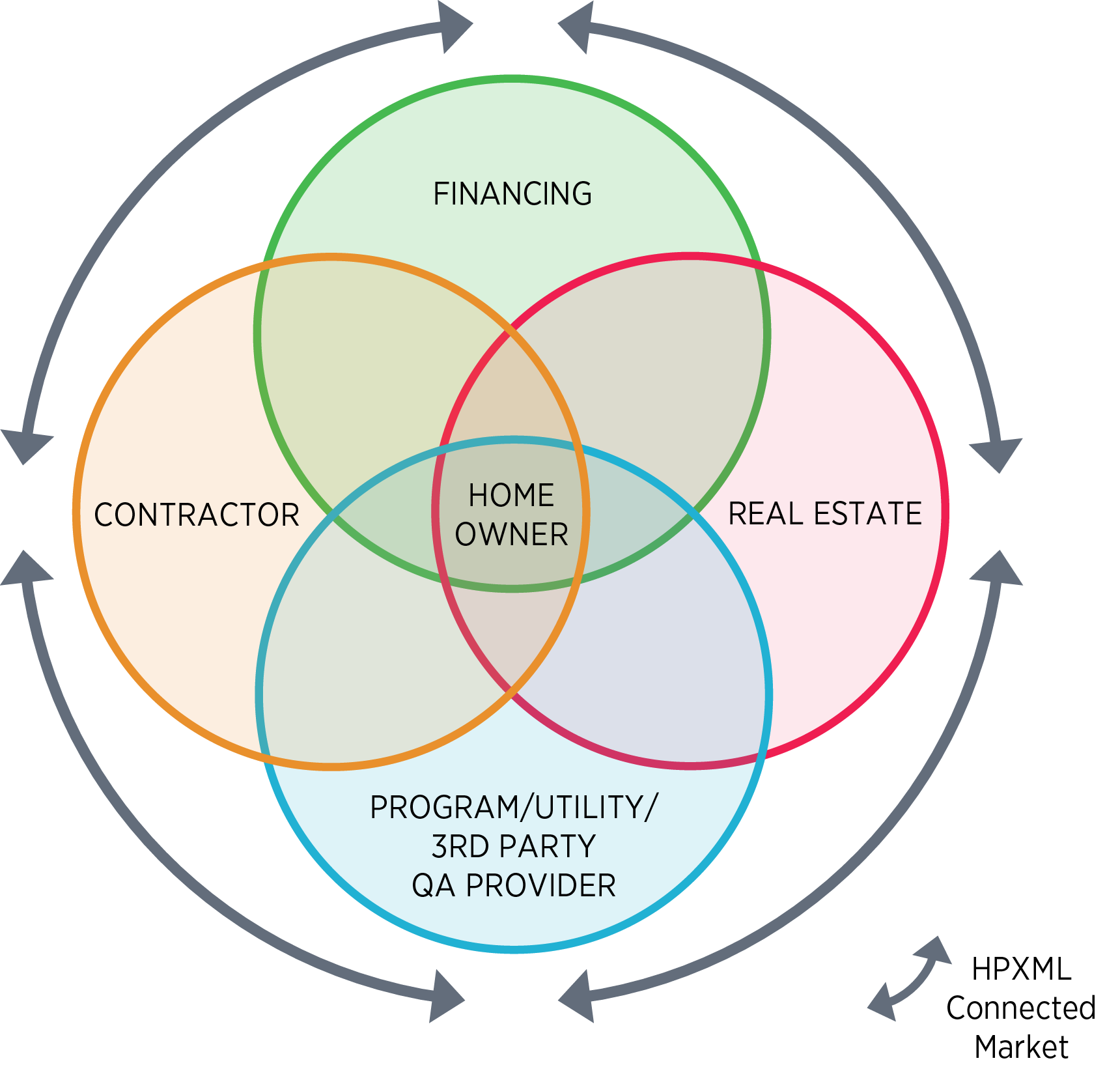Data Challenges Addressed
Home Performance eXtensible Markup Language (HPXML) reduces the costs of collecting and exchanging residential energy data so that it can be more easily aggregated, shared, and analyzed to make decisions.
HPXML standardizes the name, definition, format, and exchange of more than one thousand terms used by the residential energy efficiency industry to describe buildings, energy efficiency and renewable energy features and systems, and energy performance.
These data are produced and used by multiple market actors in residential energy efficiency for multiple purposes including program administration, research, the quantification of energy savings resulting home energy upgrades, and home valuation.

Key Use Cases
Home Performance
HPXML includes standard reporting templates for home performance programs that can be used to significantly reduce the data collection burden on contractors, particularly companies working with multiple programs. Collecting standard data for incentive calculation, quality assurance, evaluation, and reporting facilitates comparability across programs. It also drives down administrative costs for program administrators by enabling automated validation of project data. For example, after adopting HPXML, the NYSERDA Home Performance with ENERGY STAR program reduced time to approve most projects from one week to less than an hour. NYSERDA was also able to incorporate data checks into its software, automatically alerting contractors to “out of bounds” values and reducing manual data review and approval processes.
12 Programs Use HPXML
Arizona Public Service
Austin Energy
Efficiency Vermont
NYSERDA
Pacific Gas & Electric
Pearl Certification
PSEG Long Island
Salt River Project
San Diego Gas & Electric
SoCalGas
Southern California Edison
United Illuminating
Metered-Based Energy Consumption (or P4P)
Pay for performance programs utilize data analytics software to more precisely target homeowners likely to benefit from energy efficiency upgrades, and provide insight into contractor, measure, or modeling tool performance. Because analytics software both generate and leverage a large amount of data, including residential energy efficiency project data, it is crucial to adopt standards to reduce the expense and difficulty of data collection. HPXML enables software companies to spend less time and money “translating” project data into the same format, resulting in lower software development costs for developers and their clients.
Home Valuation
Making information about a home’s energy efficiency features visible to real estate agents, prospective buyers, appraisers, home inspectors, and others is crucial for enhancing the value of high performance homes. The Real Estate Certificate (BPI-2101) is a national home energy certification protocol that contains a subset of HPXML data used by real estate agents and appraisers to market and value an energy efficient home. When program administrators use HPXML, certificates can be automatically generated for homeowners at the end of a project. Certificates contain data on a home’s energy efficiency features and performance, and may include a Home Energy Score or other rating, and can be mapped to transactional standards and documents used by MLS systems and appraisers to facilitate the auto-population of these data tools.